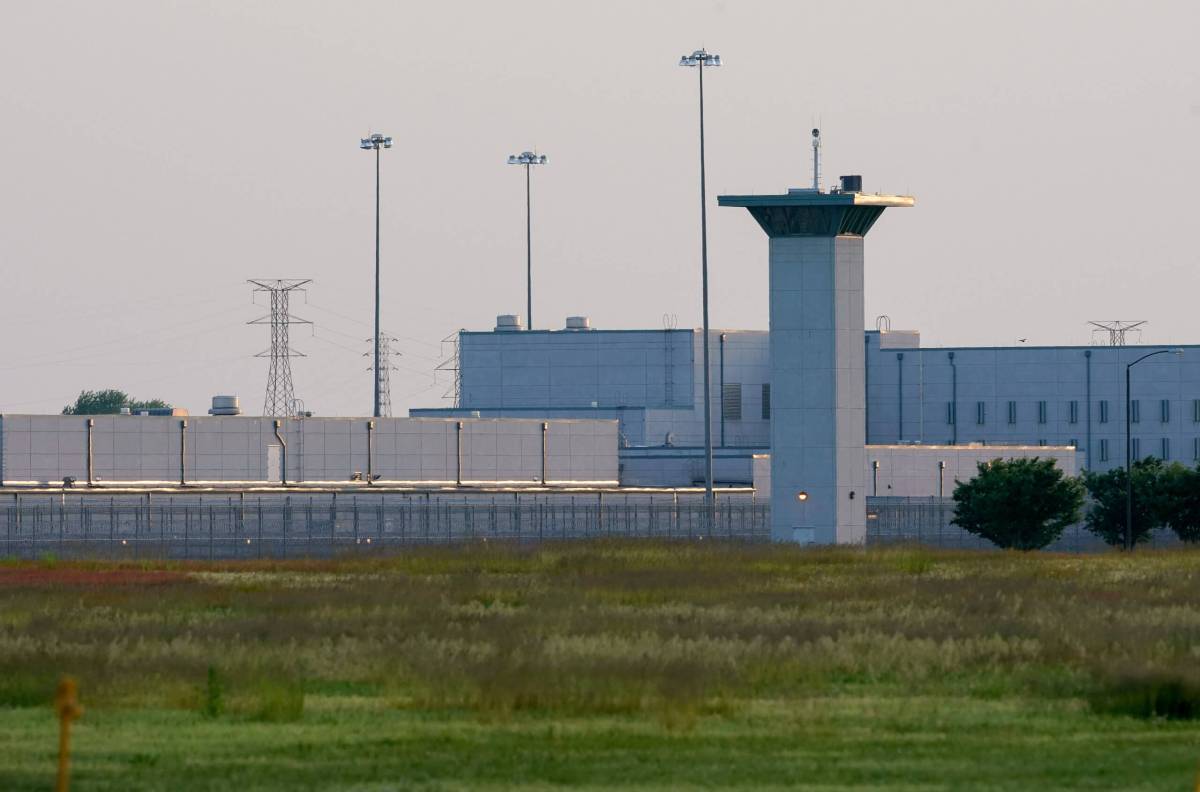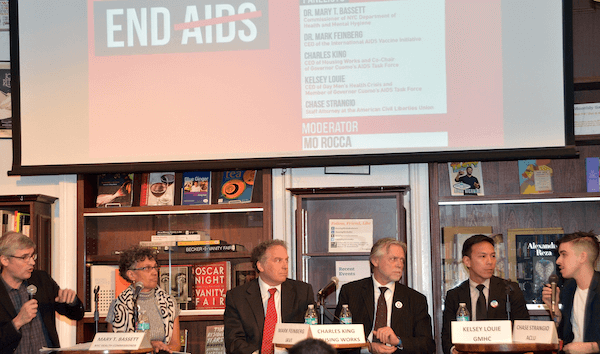A three-judge panel of the Richmond-based US Court of Appeals for the Fourth Circuit ruled on May 27 that a prison inmate with a “contagious” medical condition has no constitutional privacy right regarding that information, rejecting a claim by an HIV-positive state prison inmate in Virginia that a prison doctor violated his privacy right when comments that the doctor made in the hearing of other staff members and inmates revealed this information without the inmate’s permission.
Two of the three judges on the panel were appointed by President Donald Trump: Julius N. Richardson, who wrote the opinion, and A. Marvin Quattlebaum. The third judge on the panel, Stephanie D. Thacker, was appointed by President Barack Obama.
The ruling is significant because it diverges from rulings by several other federal appeals courts. The Supreme Court has not directly ruled on the question of whether prison inmates have a constitutional right to keep their medical information secret from other prisoners, but several courts of appeals, including the neighboring Second and Third Circuits, have found such a right to exist.
The HIV-positive inmate was in bed in the medical unit of Deep Meadow Correctional Center when the doctor approached his bed and stated that the inmate had “not taken HIV medications” that day. The inmate alleges that the medical unit is an “open dorm,” and that other staff members, inmates and civilians were close enough to overhear the doctor’s statement. Indeed, he claims, some of those nearby “stopped talking and looked” at him after the doctor spoke. The doctor then apologized, but the inmate claims the damage was done: his confidential information had been revealed to others without his consent.
The inmate filed grievances protesting the doctor’s action, but got nowhere and decided to file a claim in federal court, which he did on his own without legal assistance. District Judge Liam O’Grady dismissed the complaint, ruling that it failed to state a valid legal claim, and the inmate filed an appeal with the Fourth Circuit. Evidently the panel of judges felt that they should receive professional briefing and argument, as they appointed Gilbert Charles Dickey of McGuire Woods LLP, a Washington law firm, to argue the appeal on the inmate’s behalf.
“The Supreme Court’s guidance is less than illuminating,” wrote Judge Richardson, pointing out that in the course of rejecting privacy claims in particular cases, the Court had “assumed” for the sake of argument that such a right exists, but found that it did not apply in favor of the plaintiffs in those cases. Turning to Fourth Circuit precedents, Richardson found that previous Fourth Circuit panels had recognized 14th Amendment due process privacy claims in various cases based on a two-part test: whether the information sought is entitled to privacy protection, and whether a compelling government interest in disclosure outweighed the individual’s privacy interest. As to the first part of the two-part test, relying on a Supreme Court concurring opinion in a Fourth Amendment case about wiretapping, Richardson wrote that the Fourth Circuit has used a “reasonable expectation of privacy” test. Most of the cases where the Fourth Circuit has considered the issue have been cases involving government searches of private property, not 14th Amendment cases involving informational privacy in other contexts.
Can an incarcerated person have a reasonable expectation of privacy? Richardson noted that the Supreme Court has rejected that idea in the context of searches of a prisoner’s cell for contraband. In a 1984 case, the Supreme Court found that “any subjective expectation of privacy that a prisoner might have in his prison cell” was not one that society would recognize as legitimate or reasonable, and that the Fourth Circuit had followed this reasoning in its own decisions.
“As an inmate in a prison medical center,” wrote Richardson, the inmate “lacked a reasonable expectation of privacy in his HIV status and his compliance with his treatment plan.” The inmate didn’t contend that prison officials were not entitled to know about his HIV status, but he was arguing that other inmates and correction officers were not entitled to be privy that information, which Richardson characterized as “secondary disclosure.”
“But just as he lacks a reasonable expectation of privacy in the initial disclosure of his communicable-disease diagnosis to the prison officials,” wrote Richardson, “so too does he lack a reasonable expectation of privacy in the secondary disclosure of his diagnosis. Where an inmate lacks a reasonable expectation of privacy, he lacks it for all purposes. Whatever desire he may have to keep that information purely private is ‘incompatible’ with the needs of an institution, and therefore not reasonable.”
Richardson then takes a logical leap and compares information about HIV status to information about exposure to COVID-19, which is wildly inappropriate because COVID-19 is spread by casual contact and HIV is not.
“While HIV and its spread can be controlled by medicine,” wrote Richardson, “an inmate’s expectation of privacy in his diagnosis is still unreasonable during treatment because there remains a risk of transmission to prison workers and other inmates. For example, a prisoner might forgo taking the medicine and thus become contagious again, just as [this inmate] apparently did here.” (Nowhere else in the opinion is there any mention of the inmate having actually become contagious.)
“No matter how much a prisoner subjectively would like to keep that information to himself,” wrote Richardson, “we must ask whether that expectation is one that society is prepared to recognize as reasonable. And any subjective expectation of privacy in this information that [the inmate] has is simply not reasonable. Because we decide that this information is not within [the inmate’s] reasonable expectations of confidentiality, we need not go further to address whether [the doctor] had a compelling government interest in disclosing [the inmate’s HIV status] that outweighed [his] privacy interest.”
In 2001, in a similar case, the Third Circuit wrote in Doe v. Delie, “It is beyond question that information about one’s HIV-positive status is information of the most personal kind and that an individual has an interest in protecting against the dissemination of such information. Moreover, a prisoner’s right to privacy in this medical information is not fundamentally inconsistent with incarceration. Therefore, we join the Second Circuit in recognizing that the constitutional right to privacy in one’s medical information exists in prison.”
A disagreement among the Circuit Courts of Appeals about a constitutional question may provide grounds for obtaining Supreme Court review. In this case, however, the inmate is represented by a court-appointed lawyer for the purpose of making his argument to the Fourth Circuit. Would a court-appointed lawyer then be willing, on a pro bono (no-fee) basis, to attempt to get the Supreme Court to review this case? For now, that’s an open question.
To sign up for the Gay City News email newsletter, visit gaycitynews.com/newsletter.


































